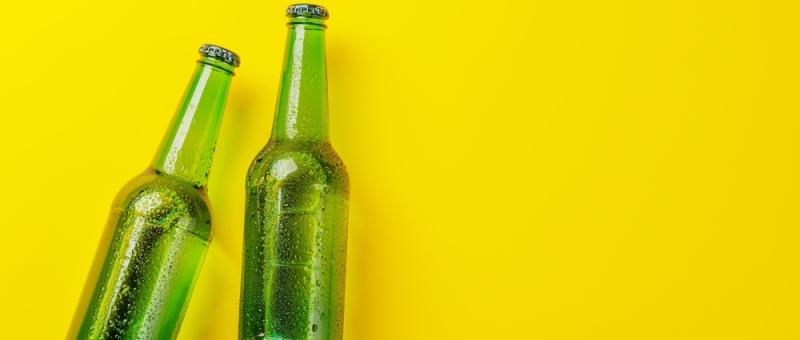
Hard seltzer: how healthy is it?
Peer reviewed by Dr Krishna Vakharia, MRCGPLast updated by Amberley DavisLast updated 24 Aug 2022
Meets Patient’s editorial guidelines
- DownloadDownload
- Share
- Language
- Discussion
Hard seltzer is the popular summer beverage that's taken the US and now Britain by storm. We burst the bubble on many of the health myths surrounding this fizzy alcoholic drink.
In this article:
Continue reading below
What is hard seltzer?
Hard seltzer sales have been bubbling over ever since this alcoholic fizzy water drink first captured the US in 2013. It's produced by several beverage companies, most notably White Claw, BrewDog, Bud Light, and Mike's. Now, Brits are embracing this trendy summer drink, with sales in 2022 surpassing $78.58 million (US dollars) and expected to increase by over 60% year on year1.
"A hard seltzer is essentially alcoholic sparkling water," explains Reema Patel, registered dietitian at Dietitian Fit. "Seltzer is the American term for sparkling (carbonated) water. Hard seltzers can be flavoured with fruit flavours and extracts, sugars, and sweeteners."
What alcohol is in hard seltzer?
Back to contentsBut what about the alcohol in a hard seltzer? This can vary from brand to brand, but typically involves spirits which are made by fermenting sugar. This involves mixing cane sugar with sparkling water and adding yeast so that the sugars are converted into alcohol.
Continue reading below
Is hard seltzer low-carb?
Back to contentsHard seltzer has been marketed as the 'healthier alcoholic beverage' to enjoy in summer compared to beer, wine, and spirits served with sugary mixers. A huge part of this claim hinges on its low-carb, low-calorie content per can.
"Some hard seltzer brands contain added sugars, but many are made with natural fruit extracts, fruit flavourings, or sweeteners, making them a low-carbohydrate option," Patel confirms.
Calorie-free sparkling water makes up most of the drink, making hard seltzer a better choice if you're looking to lower your alcohol calorie intake. However, keep in mind that lower-calorie isn't the same as healthy; this popular beverage contains 'empty calories' of poor nutritional value.
"Any type of alcoholic drink is harmful for the body," adds Patel. "It's still important to be mindful and moderate when drinking any form of alcohol."
A typical 330 millilitre (ml) hard seltzer contains2:
95-100 calories.
2 grams of carbohydrates.
Does hard seltzer hydrate you?
Back to contentsHard seltzer is mainly water, and this is the other half of the 'healthier alcoholic beverage' argument. Water is good for us because it prevents dehydration; a condition that can result in a wide range health issues3, from unclear thinking to kidney stones, and even death in the most severe cases.
However, don't be fooled into thinking this applies to hard seltzer water! Patel explains: "Hard seltzers are not hydrating. This is because the alcohol contained in them is dehydrating and acts as a diuretic, meaning you will lose more fluid, especially with consuming more hard seltzers.
"So, if you are looking to keep hydrated, it's best to stick to plain old water or sparkling water, without the addition of alcohol! Or at the very least, be sure to space out any alcoholic drinks with water, to help with hydration levels."
Continue reading below
Is hard seltzer better for you than beer?
Back to contentsIf you enjoy alcohol, the best way to protect your health is to watch your alcohol by volume, adhering to a maximum of 14 units per week4.
"In terms of alcohol content, seltzers, and beers average similar levels of between 4-6% alcohol by volume, though some craft beers can be upwards of 7%," says Patel.
"However, seltzers are generally lower in overall calories compared to beer, as it is made up from mostly water. Beer contains carbohydrates from the grains (usually malted barley) that are used in the fermentation process, which can contribute to its calories," says Patel.
As a result, hard seltzer may be considered 'better for you' than beer if you have healthy weight loss goals.
Is hard seltzer gluten-free?
If you have a gluten intolerance, while beer contains gluten in the form of barley and wheat, hard seltzer is naturally gluten-free.
The dangers of the healthy alcohol myth
Back to contentsSorry, hard seltzer fans - despite its sparkling reputation, the truth is that no alcoholic drink is truly healthy! It's time that misinformation around hard seltzers - for example, that they're hydrating and don't cause hangovers - fizzles out for good.
Can hard seltzer get you drunk?
As with all alcohol, drinking hard seltzers in excess affects you in the short term. For example, your spatial awareness decreases, you're more likely to partake in risky behaviour, you may experience low mood (as alcohol is a depressant), and you'll need to pee more which causes dehydration.
Let's not forget the hangover! This could include dehydration headaches, hot flushes, nausea, and vomiting.
Bursting the binge-drinking bubble
No matter your go-to alcoholic beverage, binge drinking - consuming a large amount of alcohol within a short period - can result in alcohol poisoning.
Alcohol poisoning can cause:
Hypothermia.
Brain damage.
Coma.
Death.
If you find yourself drinking to excess on a regular basis, there are many other serious health problems that may occur. These include:
Anxiety and depression.
In some cases, binge drinking could be a sign of alcohol dependency, or alcohol use disorder. If you are concerned that you have the signs of alcohol addiction, contact your GP for advice and treatment options.
Alternatively, you may be able to access an alcohol support services in your local area without a GP referral.
Further reading
Back to contentsPatient picks for Alcohol advice

Healthy living
How to control your drinking at a work Christmas party
From kissing our colleagues to criticising the boss, more than 1 in 4 people in the UK have regretted something they did at a work Christmas party. Drinking too much alcohol is the main issue, so how can we control our drinking when we feel pressured?
by Amberley Davis

Healthy living
What are the dangers of drinking in hot weather?
Whether it's after work drinks, post-exam celebrations, or weekends spent in pub gardens, drinking in the sun can be a big part of summer culture. If this activity is part of your summer plans, how can you limit the dangers that accompany the sun-alcohol cocktail? And if you have a teenager, how can you keep them safe?
by Lawrence Higgins
Continue reading below
Article history
The information on this page is peer reviewed by qualified clinicians.
24 Aug 2022 | Latest version

Ask, share, connect.
Browse discussions, ask questions, and share experiences across hundreds of health topics.

Feeling unwell?
Assess your symptoms online for free
Sign up to the Patient newsletter
Your weekly dose of clear, trustworthy health advice - written to help you feel informed, confident and in control.
By subscribing you accept our Privacy Policy. You can unsubscribe at any time. We never sell your data.